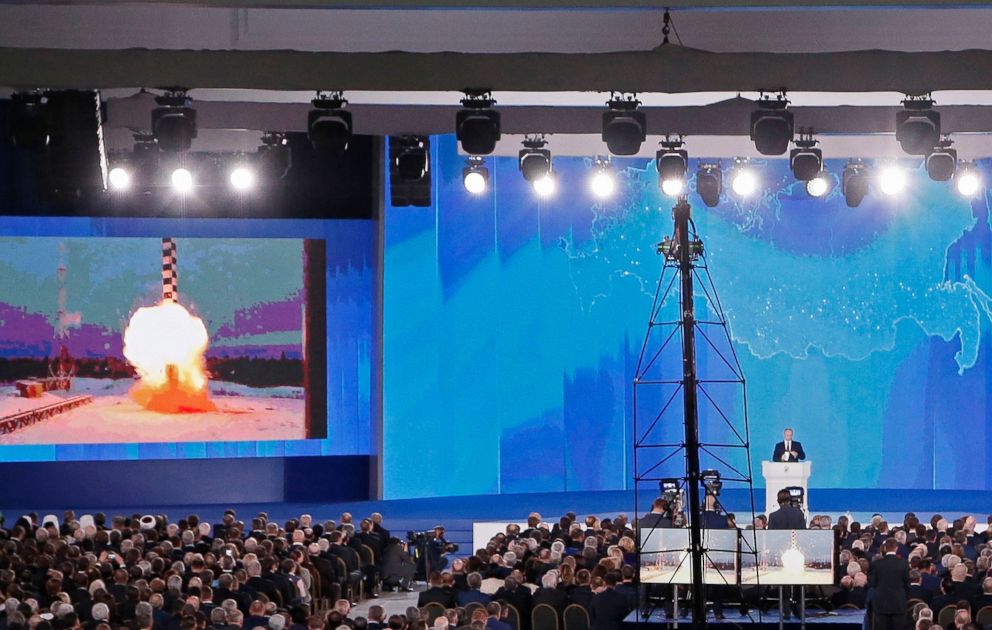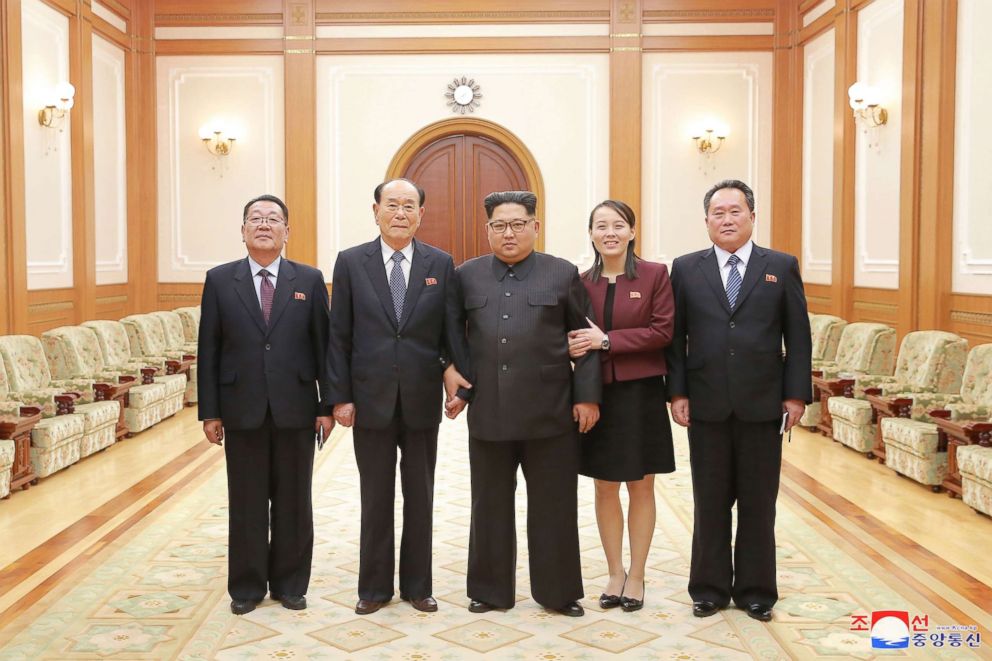ANALYSIS: Trump White House disarray creates openings for US rivals, adversaries
Adversaries can take advantage of White House confusion.
—washington -- A looming trade war, a nuclear arms race, an admission that America’s cyber warriors have done little about Russian election interference, confusion over Trump’s position on North Korea – through one of the most chaotic weeks of Donald Trump’s presidency, America’s adversaries can find opportunity in the upheaval.
TRUMP TARRIFS DAMAGE ALLIANCES
Trump’s surprise announcement of steep tariffs on foreign steel and aluminum may have been intended to help U.S. industry and hurt China, but the effect could be the opposite.
A lot more Americans work in industries that use metal than work in industries that extract it, so any price increases that come when cheap foreign steel and aluminum are cut off would be passed on to consumers. That means less demand for American made goods, and fewer jobs in the factories that make them.
Setting that problem aside, Trump’s rationale for imposing the new tariffs – that protecting domestic metal industries is a national security issue – could now be used by China to slap its own tariffs on U.S. goods.
The European Union, which includes major steel exporters like Germany, rejected Trump’s national security argument, calling the tariffs “a blatant intervention to protect U.S. domestic industry.”
“The EU has been a close security ally of the U.S. for decades,” European Commission President Jean-Claude Juncker said in a statement. “We will not sit idly while our industry is hit with unfair measures that put thousands of European jobs at risk.”
Because the international trade system touches all of America’s alliances, a disruption like the one Trump announced opens up opportunities for any competitor and rival hoping to benefit by exploiting those rifts.
In Asia, that’s China, with its strategic goal of supplanting the United States as a world leader, and North Korea, which stands to benefit from the trade tensions between the Washington and Seoul. In Europe, where a trade war would pit America against NATO nations, the rift plays right into Russia’s hands.

RUSSIAN THREATS GO UNANSWERED
In his belligerent State of the Nation speech Thursday, Russian President Vladimir Putin introduced what he said were new nuclear-powered cruise missiles and featured a dramatic animation showing the missiles evading U.S. defenses as they zipped towards the U.S. West Coast.
“With the missile launched and a set of ground tests completed,” said Putin, “we can now proceed with the construction of a fundamentally new type of weapon.”
Whether you believe Putin’s boast, there was no mistaking his message: As America builds ever more sophisticated missile defense systems, Russia will build new weapons to render them obsolete.
“Nobody listened to Russia,” Putin told the cheering crowd. “Well, listen up now.”
White House press secretary Sarah Sanders told reporters that Trump “is determined to protect our homeland and preserve peace through strength” by modernizing America’s nuclear arsenal, but Trump himself, who has been less critical of Putin than other members of his administration, has said nothing about Putin’s speech or that threatening video.
Trump’s apparent reluctance to counter Russian provocations has also thrown a question over his commitment to keep Russia from meddling with the upcoming congressional elections.
Tuesday, the head of U.S. Cyber Command told the Senate Armed Services Committee that Russia’s efforts to undermine American democracy by spreading disinformation online are ongoing, and that the military’s cyber warriors have not been directed by President Trump to do anything about it.
“I haven’t been granted any additional authorities,” said Adm. Mike Rogers, who is set to retire this spring. “I need a policy decision that indicates there is specific direction to do that.”
Thursday the man nominated to replace Rogers told the same committee that the government’s response to Russia’s sophisticated assault on U.S. democracy has failed to deter Moscow.
“Right now they do not think that much will happen to them,” Lt. Gen Paul Nakasone told the Senate Armed Services Committee. “They don’t fear us.”

NORTH KOREA OUTMANEUVERS AMERICA
On Thursday South Korea’s president Moon Jae-in called President Trump to inform him that South Korea intends to send a special envoy to North Korea to carry on talks started at the winter Olympics.
The White House read-out of the phone call made no mention of the envoy, instead re-stating the U.S. position that “any dialogue with North Korea must be conducted with the explicit and unwavering goal of complete, verifiable, and irreversible denuclearization.”
Earlier this week Moon’s office quoted the South Korean president as saying that “there is a need for the United States to lower the threshold for talks with North Korea, and North Korea should show it is willing to denuclearize. It’s important the United States and North Korea sit down together quickly.”
At a meeting with state governors at the White House, President Trump said “they want to talk. We want to talk also, only under the right conditions. Otherwise we’re not talking. We’ll see what happens. That’s my attitude, we’ll see what happens.”
For its part, North Korea has always flatly rejected any discussion of its nuclear weapons, which it sees as its only protection against an American invasion.
If nuclear weapons aren’t part of the discussion when South Korea’s envoy goes to Pyongyang, the return to a more normal level of diplomatic activity could simply serve to legitimize North Korean leader Kim Jong Un, even as his regime forges ahead with its ambitious nuclear weapons program.
Time is on Kim’s side. The longer he waits, the closer he gets to building a weapon powerful enough to make military action more problematic -if not impossible. And now with Trump’s trade policies causing new friction between Washington and Seoul, he like Trump has every incentive to wait and “see what happens”.
As Kim maneuvers to crack the alliance open, the State Department has lost one of its most experienced Korea experts, U.S. Special Representative for North Korea policy Joseph Yun, who unexpectedly announced his retirement. His last day was Friday.




